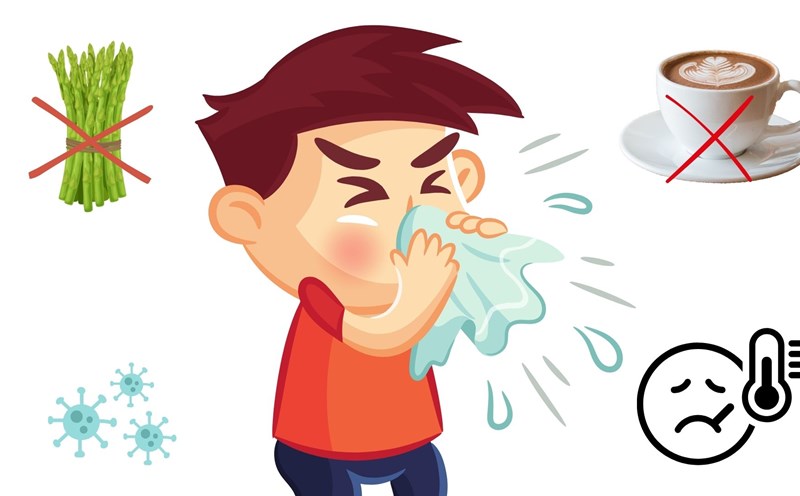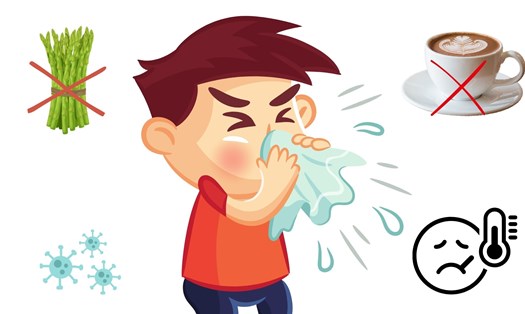Ginger is considered a precious herb in Chinese medicine, which has the effect of warming the body, stimulating digestion, reducing nausea and supporting cold treatment. However, many people mistakenly believe that ginger can be used in all cases of illness, even when suffering from high fever or high blood pressure.
First of all, ginger is hot, helping to increase blood circulation and dilate peripheral vessels. In people with high fever, the body is already in a state of excess body heat, if they continue to use ginger, in the form of ginger tea, ginger water or slow down the slice of fresh ginger, it will increase the body temperature, causing dehydration, increased thirst, and can even lead to cramps or cramps in young children. This mechanism is completely opposite to the principle of fever reduction in modern medicine, which is to help the body excrete heat without storing heat.
For people with high blood pressure, using ginger also has great potential risks. Because ginger stimulates the heart to beat rapidly and increases blood flow, it can cause sudden spikes in blood pressure, causing headaches, dizziness, or stroke in people with unstable blood pressure. Ginger also has a blood thinning effect. Therefore, if used with anticoagulants or blood pressure drugs, it can lead to dangerous drug interactions, causing bleeding or heart rhythm disturbances.
Although ginger is very good for colds, abdominal pain caused by cold or bloating, people with high fever or high blood pressure should absolutely avoid it.
Therefore, housewives should note that ginger only promotes its effects when used for the right person and for the right disease.











